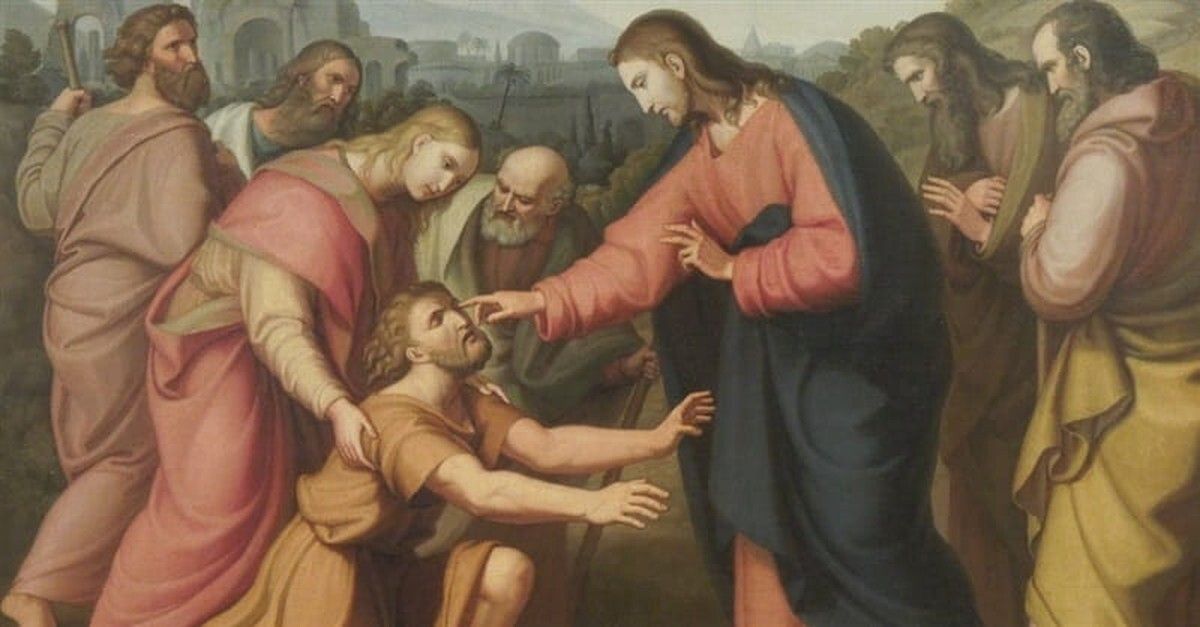An attentive worshipper might notice that this month the Gospel proclamations at Sunday Masses – with exception of verses 32 to 34 – are basically the entire tenth chapter from the Gospel according to St. Mark. One might also notice that these readings contain, what many scholars have called, some of the “hard sayings” of Jesus. Read as individual passages, they might prompt a discussion about Jesus’ teaching on divorce (Mk 10:1-11; cf. Mt 19:3-9), or having faith like a child (Mk 10:13-16), or Jesus’ estimation of worldly goods (Mk 10:23-27). But if one examines the chapter as a whole, I think one can find two themes that unite what might seem like a series of individual teachings or just another healing miracle.
We might call the first theme: the law is not enough. Consistently, throughout the synoptic Gospels, Jesus emphasizes that observing the law is not the end goal of the spiritual life; rather, it’s the beginning [this point is most apparent in Mt 5]. Jesus’ ministry is much more concerned with internal transformation rather than external behavior. While Pharisees may argue over the liceity of divorce, or the rich man may want to know precisely how many possessions are sufficient to inherit eternal life, or the apostles may debate who will have the higher rank in the Kingdom of God, they’re all missing the point. Christ came to heal us from the inside-out, so to speak (see also Mk 7:14-23). He came to redeem us through the grace which he won for us on Calvary; thereby transforming the whole person. And this grace is a free gift from God. It can’t be earned by good works or obedience to a certain set of rules. Jesus wants saints, he wants “friends” who love him (Jn 15:15; 21:15-19), not simply pupils who conform to a moral code. Much like the saying, “Fear of the Lord is the beginning of wisdom” (Prov 9:10), the Christian moral life starts with the 10 commandments, but it doesn’t end there.

And this takes us to our second theme, which we might call: disciples follow. This past Sunday, we heard the story of the rich man with many possessions and Jesus’ words about the difficulty for those “with riches to enter the kingdom of God.” Again, this might prompt a discussion about wealth and poverty, and what is appropriate for a disciple of Christ to possess. But, yet again, there’s a larger theme at play. This passage is far less about individual wealth than it is about removing impediments – whatever they may be – to following Christ. Wealth can be a big one, but so can addiction, so can unhealthy attachments to people, and so forth and so on. At the core of this passage is Jesus’ explicit invitation to the rich man – whom the text says Jesus “loved” – to come and follow him, and the rich man’s sorrowful turning away (10:23-24). The Gospel states that it was because of the rich man’s wealth, but it can be anything. A true disciple of Christ is not one who simply recognizes the quality of Jesus’ teaching; which the rich man does (v. 17). Rather, it is the one who sets aside any obstacle to Christian discipleship and follows our Lord. The story of the rich man finds its contrast in the last passage from chapter 10; which we will hear proclaimed on Sunday, the 27th. After Jesus cures the blindness of a man named Bartimaeus, he says to the beggar: “Go your way; your faith has made you well” (v. 52). Yet Bartimaeus followed Jesus. The rich man, who is obviously Jewish, received an invitation but rejected it. The beggar, who is a Gentile, got no invitation but followed Jesus anyway. That’s what disciples do. They follow Jesus.

